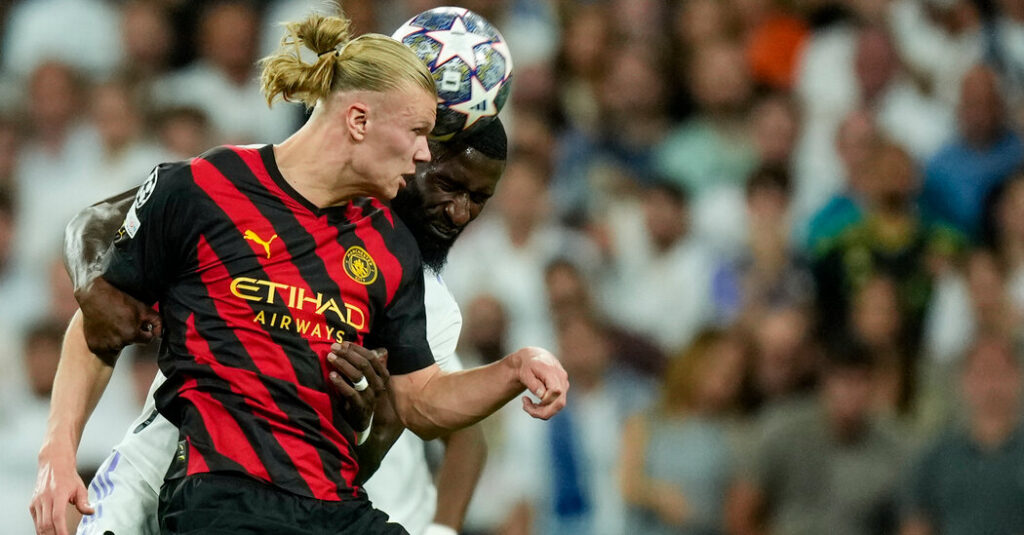Here was Haaland, dropping deep to pick up the ball, being thrown to the ground by Rüdiger. Here was Rüdiger, for some reason slipping his head through the crook of Haaland’s elbow, effectively giving his consent to be placed in a headlock, grinning in (presumably) accidental homage to Jack Nicholson in “The Shining” as he did so.
Most judges, by the end, would have scored it a split decision: Haaland did not score, a rarity this season, and in truth had only a couple of sights of goal; his presence was central, though, in creating the space that led to Kevin De Bruyne’s equalizer for City, the strike that will make Guardiola’s team the slight favorite when hostilities are resumed next week in England.
And that, perhaps, will not displease either coach. For all their philosophical differences, what was striking about this game was just how aware both teams were of the other’s strengths, their capacity to inflict damage. That, more than anything, might have been the enduring lesson of their encounter in a semifinal last season: Madrid conscious of just how good City can be; City conscious that a team can be as good as it likes against Madrid and still lose.
Real, on home territory, was at times so passive that it tried its fans’ patience; the Bernabéu is not used, after all, to its visitors having the temerity to keep the ball for long periods of time. There was a point, midway through the first half, when City’s passing started to affront the crowd’s dignity: What had started as whistling turned, slowly but surely, into jeers.
For Ancelotti, though, that was a price worth paying: Tactically, strategically, it made sense for Real to dig in, to sit deep, to lie in wait, and then to pick its moments. A few minutes later, his approach bore fruit: Eduardo Camavinga, playing the hybrid fullback/midfielder role that is so de rigueur these days, spotted a gap and levered it open, then found Vinícius Júnior in sufficient space to fizz a shot past Ederson.


